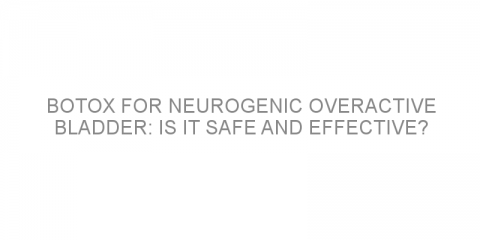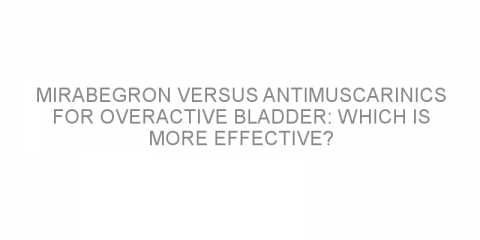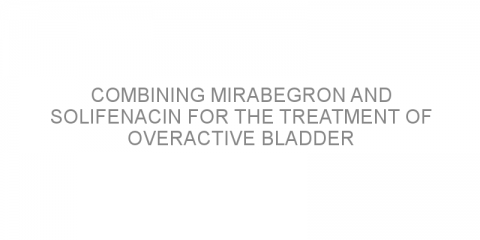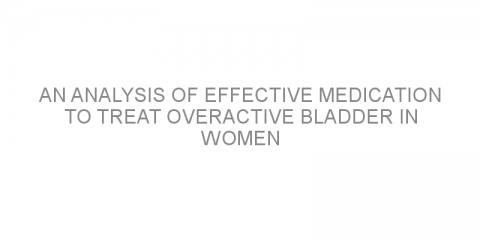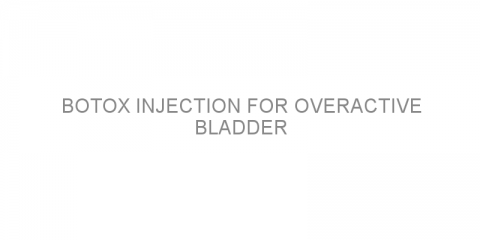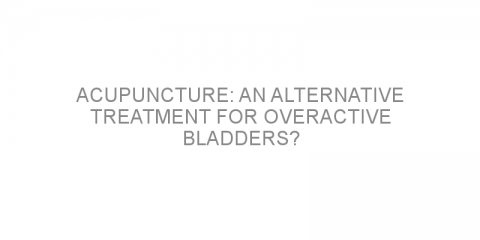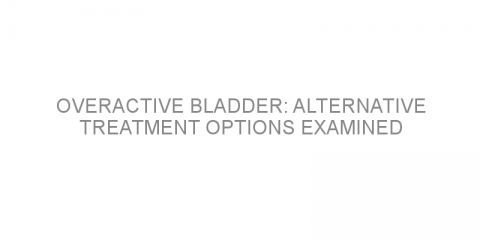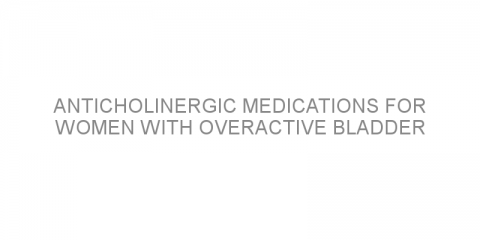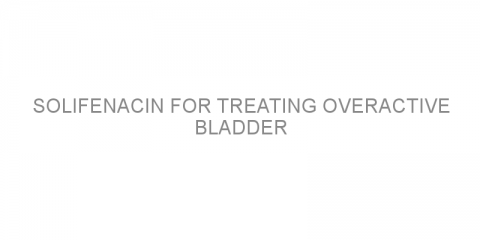In a nutshell This study investigated the safety and effectiveness of onabotulinumtoxinA (Botox, or botulinum toxin) in patients with neurogenic detrusor overactivity (NDO). This study concluded that onabotulinumtoxinA is effective and safe for treating patients with NDO compared to placebo. Some background Neurogenic detrusor overactivity (NDO)...
Read MoreOveractive bladder Posts on Medivizor
Mirabegron versus antimuscarinics for overactive bladder: which is more effective?
In a nutshell This study investigated the safety and efficacy of mirabegron (Myrbetriq) versus anti-muscarinics in patients with overactive bladder (OAB). The study concluded that mirabegron was as effective as anti-muscarinics in improving OAB symptoms, with fewer side effects. Some background Oral anti-muscarinic agents, such as solifenacin...
Read MoreComparing electrical stimulation to other therapies for the treatment of overactive bladder
In a nutshell This study compared the effects of non-implanted electrical stimulation (ES) to muscle training or drug therapy for overactive bladder (OAB). The authors concluded that ES may be better than muscle training or drug therapy for improving OAB symptoms. Some background A common symptom of overactive bladder (OAB) is urinary...
Read MoreCombining mirabegron and solifenacin for the treatment of overactive bladder
In a nutshell This study investigated the effect combining mirabegron (Myrbetriq) and solifenacin (Vesicare) to treat overactive bladder (OAB). They found that combining mirabegron and solifenacin was more effective than solifenacin alone and was well-tolerated. Some background To treat overactive bladder (OAB), patients are prescribed...
Read MoreAn analysis of effective medication to treat overactive bladder in women
In a nutshell This study analyzed the effectiveness of medication to treat overactive bladder in women. They found that 5mg solifenacin (VESIcare®) once daily is a safe and effective treatment for overactive bladder. Some background Overactive bladder (OAB) is a condition where a person experiences an increased urge to urinate. In some...
Read MoreBotox injection for overactive bladder
In a nutshell This study investigated the safety and effectiveness of onabotulinumtoxinA (Botox) in adults with overactive bladder (OAB) that does not respond to anti-cholinergic treatment. This study concluded that onabotulinumtoxinA injection significantly improved OAB symptoms and health-related quality of life for these patients. Some background...
Read MoreAcupuncture: An alternative treatment for overactive bladders?
In a nutshell This study reviewed evidence on acupuncture as an alternative treatment option for overactive bladders. The authors concluded that early findings on acupuncture treatment are promising, but additional high-quality evidence is needed. Some background First-line drug treatments for overactive bladders are often ineffective or cause...
Read MoreOveractive bladder: Alternative treatment options examined
In a nutshell This study evaluated recent evidence on different treatment options available for overactive bladder symptoms. Authors concluded that a number of alternative treatments are as effective as the current standard-of-care anti-muscarinic drugs. Some background Bladder muscle over-activity is a common cause of urinary urgency and...
Read MoreAnticholinergic medications for women with overactive bladder
In a nutshell This study investigated the safety and effectiveness of different anticholinergic medications for overactive bladder (OAB) in women. The authors concluded that anticholinergics lead to modest improvement of OAB symptoms, and rarely fully resolve symptoms. Some background Overactive bladder (OAB) affects 1 out of 7 women and can have a...
Read MoreSolifenacin for treating overactive bladder
In a nutshell This study evaluated the effectiveness and safety of solifenacin (Vesicare) for treating overactive bladder (OAB). The authors concluded that the 5 mg dose of solifenacin was similar to tolterodine, while balancing effectiveness and side effects. Some background Oral anti-muscarinic agents are the typical first-line drug therapy for...
Read More
